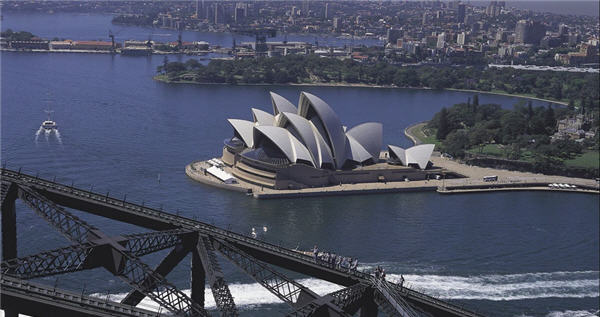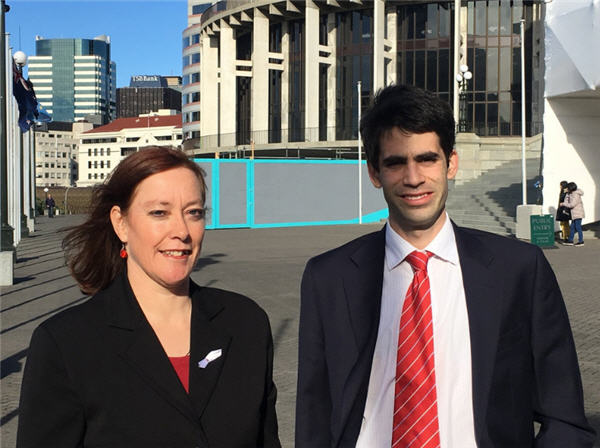Oz Kiwi reassured after meeting NZ Foreign Minister

12 June 2017
New Zealand Herald
A lobby group for Kiwis living in Australia says it is reassured the New Zealand Government is working behind the scenes to protect expats' rights.
Oz Kiwi representatives Tim Gassin and Joanne Cox are in Wellington and met with Foreign Minister Gerry Brownlee today.
The group was critical of Brownlee after he met his counterpart Julie Bishop in Sydney in May, saying he wasn't vocal enough on expat rights.

However, Gassin said today's meeting was productive and provided reassurance the issue was being taken seriously. “We have been reassured that he is raising these issues behind the scenes, and has given a commitment that he is going to keep raising these issues and maintain a positive discussion with us,” Gassin told the Herald. “That is what we have been wanting for some years. He has gone out of the way to meet with us and engage with us in a way his predecessor didn't, and we are very appreciative of that.”
Brownlee said the meeting was productive. The freedom of movement between Australia and New Zealand didn't mean both countries couldn't determine requirements for permanent residency, citizenship, and social security. “New Zealanders should understand that New Zealand and Australia are separate countries and the rights and entitlements they enjoy at home do not necessarily translate to Australia,” Brownlee said.
New Zealanders who had lived in Australia for a long time or intend to do so should consider dual citizenship, and investigate the pathway to it, Brownlee said.
Gassin said that Australian citizenship simply wasn't possible for many people. “There are a large number of New Zealanders who are contributors to Australian society, who pay their taxes, who volunteer in the community, who are going to live there the rest of their lives who have no pathway to citizenship. We are in a situation now where a child can be brought there as an infant, live out there life there until they are 90 years old, and never be able to get citizenship. I don't think that is a sustainable situation in any democratic society and I think a growing number of people in Australia accept that.”
Gassin and Cox are also meeting with officials from the Ministry of Foreign Affairs and Trade, Ministry of Social Development, Ministry of Education, Maori Party and Labour. They will also meet with Australian High Commissioner Peter Woolcott.
After the bilateral talks between Brownlee and Bishop, the two ministers said they had agreed to get a better understanding of each other's domestic policies which affected expatriates. But Bishop emphasised that this agreement did not amount to a review of recent changes which affected Kiwis, such as proposals to massively increase university fees.
Ahead of the talks, Brownlee said he wanted to ensure that the Australian government “communicated sooner” about changes which affected expats, after three major changes were announced in the past two years with little or no notice. New Zealanders in Australia aren't eligible for the unemployment of disability benefit.
Labour leader Andrew Little met with the group during a trip to Canberra in November 2015, to push for increased expat rights and protest the deportation of New Zealand citizens who had served time in jail or were judged to have failed a character test. In April, Prime Minister Bill English confirmed a special pathway to citizenship for expat New Zealanders living in Australia remains intact.
Expats were concerned immigration changes announced by Australian Prime Minister Malcolm Turnbull would undermine an agreement signed by Turnbull and former PM John Key last year, which made it easier for Kiwis to get citizenship if they arrived after immigration rules were tightened in 2001.
The Turnbull-Key agreement allowed New Zealanders who arrived in the country between 2001 and February 2016 and earned more than A$53,000 for five consecutive years to apply for permanent residency. They could then apply for citizenship after a year.
Read the NZ Herald article.